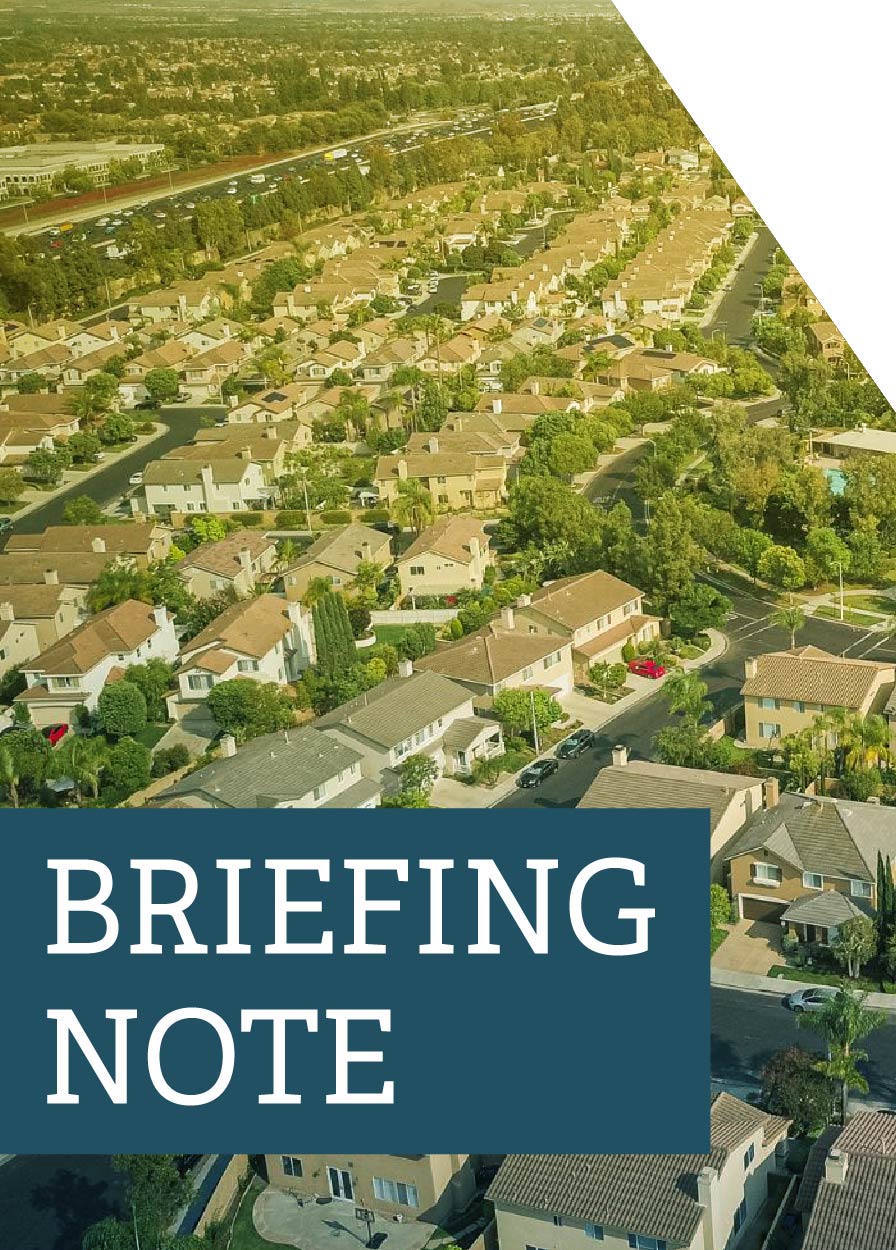

Alex Clegg
Resolution Foundation
Ruth Patrick
University of YorkJed Meers
University of York
Mike Brewer
Resolution Foundation
Uisce Jordan
University of York
Millie Light
University of YorkRhiannon Sims
Heriot-Watt UniversityHayley Bennett
Lecturer in Social Policy, University of EdinburghBeth Watts-Cobbe
Heriot-Watt UniversityJoe Pardoe
University of SalfordRenew and improve: Setting up the Household Support Fund for the future
22 May, 2025 Read BriefingThis briefing is a collaboration between the Resolution Foundation, Safety nets, and Changing Realities published on 22nd May 2025.
All social security systems require crisis support to prevent sudden increases in a family’s costs from causing destitution or spiralling debts. Since 2021, crisis support in England has largely been provided through the Household Support Fund (HSF). Conceived of as a temporary post-Covid-19 initiative, the HSF has already been renewed six times and will have provided an estimated 80 million awards by the time its current funding runs out in March 2026, at a total value of £3.7 billion. At the upcoming Spending Review, the Government has a chance to deliver a long-term settlement for the HSF and safeguard the future of crisis support.
In recent years, politicians have frequently pointed to renewals of the HSF in efforts to signal that they are taking steps to support low-income households. But as the rhetorical and political emphasis on the scheme has persisted, the total value of each wave of the fund has declined in real terms, and there has been a cut in cash terms for the 2025-26 wave. In real terms, the six-monthly value of the fund has declined by 27 per cent between 2021-22 and 2025-26. If it had increased with inflation, the six-monthly value of the fund in England would now be £517 million instead of £371 million.
So far, the HSF has been renewed in bursts of funding lasting 6 or 12 months, reflecting the initial intention that the scheme would be a temporary salve until the grips of the Covid-19 crisis, and then the cost of living crisis, eased. These short-term renewals have created administrative issues for local authorities, which they report have limited the scheme’s effectiveness. Local authorities have been given as little as a few weeks’ notice of the scheme’s renewal for some waves, giving them little time to plan the allocation of awards and making it impossible to retain administrative staff. They are also expected to cover the costs of administering the fund from the money allocated to them to provide awards, leading to trade-offs between maximising the value of the fund and providing a well-designed and targeted scheme. This contrasts with Discretionary Housing Payments (DHPs), which include additional ringfenced funding to cover administration worth nearly 16 per cent of the total DHP budget.
There has been wide variation between local authorities in how their allocations of HSF funding have been spent, but the largest spending categories for both the type and delivery mechanism of support highlight issues with the scheme that could be improved. For example, Free School Meals (FSM) support in the holidays became the largest category of HSF expenditure in waves 3 and 4 (surpassing non-FSM food support and support with energy and water), after it was added to the official guidance as a potential use of the fund. Extending FSM support in the holidays is arguably not an ideal use of crisis support funding; this need would be better covered by an increased FSM budget. But local authorities have pointed to political pressures to continue providing this type of support, as well as the need to allocate funds quickly and with limited administrative resources.
Firsthand accounts from parents show that there are often issues for individuals trying to access crisis support, and there are real problems with finding out what is available locally. There are also shortcomings in the provision of support through vouchers and services, with a preference expressed repeatedly for cash support as the most flexible, non-stigmatising and supportive way to respond to crisis needs. The majority of support (57 and 59 per cent respectively) in waves 3 and 4 was delivered as vouchers, which can be less efficient than cash: not all retailers accept them, and lists of retailers that do can often prove inaccurate, meaning people must use their own resources to travel to find places where they can be spent. Cash awards give recipients more dignity, autonomy and flexibility.
In the upcoming Spending Review, the Government should commit to funding the HSF until at least the end of the Parliament. Establishing a longer-term footing would recognise the ongoing need for crisis support and also allow local authorities to maintain administrative teams, have time to plan how awards are made and better target residents who are most in need. The value of the fund should also be indexed to inflation in future, to prevent its real value declining further over time. But the HSF also needs reform. Local authorities should be provided with ringfenced funding to cover administration costs worth 5 per cent of their funding allocation; future guidance should state a preference for awards to be provided as cash; and the Department for Work and Pensions (DWP) should set itself the goal of improving awareness.
A comprehensive system of crisis support will always be needed to mitigate against unforeseen financial emergencies, but it is especially pressing now because the current shape of the benefit system in the UK generates a state of endemic financial insecurity for those who rely on it for all or most of their income. A scheme worth £1 billion per year (0.3 per cent of all UK welfare spending) and based on discretion rather than entitlement must not be seen as a panacea for more fundamental reform to shore up the gaps in the national social security system. The Spending Review is the time for the Government to commit to funding the HSF until at least the end of the Parliament, and to reform it to ensure that the best possible crisis support is provided.
Alex Clegg
Resolution Foundation
Ruth Patrick
University of YorkJed Meers
University of York
Mike Brewer
Resolution Foundation
Uisce Jordan
University of York